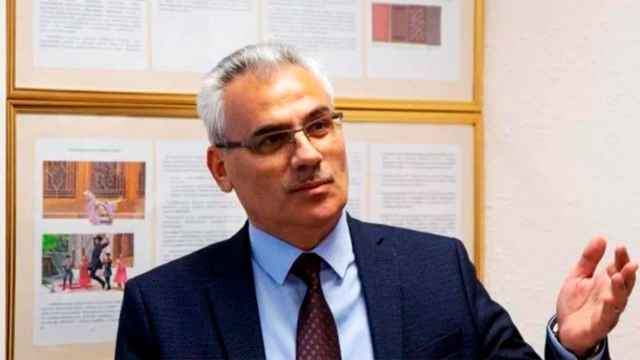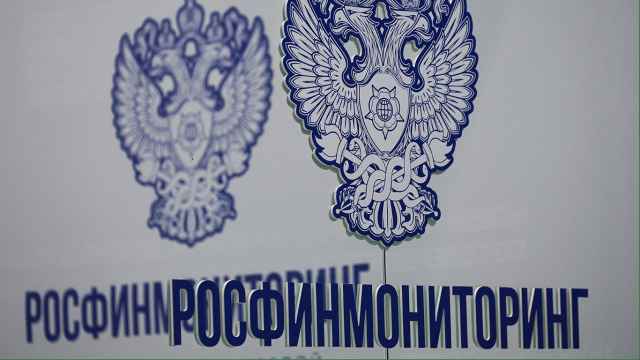The Moscow City Court on Thursday canceled compulsory psychiatric care for ex-career diplomat Platon Obukhov, putting a formal end to one of the country's most bizarre spy cases 15 years after it started.
After Obukhov's arrest in April 1996 on charges of passing secrets to British agents while working at the Foreign Ministry, Moscow and London expelled four diplomats each in the first such tit-for-tat exchange since the Cold War.
What followed was a seemingly endless legal battle, in which Obukhov stood trial twice and was moved in and out of psychiatric units.
The son of a Soviet deputy foreign minister quickly became the talk of the town. He wrote thriller novels while working on the Foreign Ministry's United States and Canada desk and continued to write in prison.
Media reports suggested that the case was fabricated as revenge for Obukhov naming the character of a mafia boss running a ring of prostitutes in his novel "Fateful Woman," published in 1996, after the head of his own department at the ministry.
The book is no longer in print, according to the web site of his publisher, Ast Group, which currently lists six of Obukhov's novels.
Obukhov's sanity has been questioned ever since he made an eccentric television appearance from Moscow's Lefortovo pretrial detention prison three months after his arrest.
Wearing a dunce's cap emblazoned with a red star, mismatched socks and sneakers with no laces, he frequently swore while telling an interviewer from NTV that his career as a spy was marked by "panic and fear" and that he vomited before and after each contact, The Moscow Times reported at the time.
Obukhov, who had also served in Russian foreign missions in Norway, including Spitzbergen, also claimed that he wrote down state secrets and transmitted them to Britain by radio from trolley buses.
He behaved similarly in the courtroom, shouting during a hearing: "I'm a great writer, I've got a Nobel Prize for literature."
His father, Alexei Obukhov, who had also served as Russian ambassador to Denmark, later said his son was mentally ill.
Following four years of legal twists and holdups, Obukhov was convicted in 2000 and sentenced to 11 years in prison.
But the verdict was repealed the following year after his lawyers insisted that his testimony, which formed the case, was invalid because of his mental illness.
In 2002, Moscow City Court officially declared Obukhov insane, saying that he suffered from schizophrenia, and sent him into compulsory psychiatric care.
The legal battle did not end there, as he was released from psychiatric hospital in 2003 but ordered to undergo compulsory ambulatory care.
This order was subsequently challenged in court twice by prosecutors, but their appeal was eventually thrown out in 2008 by Moscow City Court, which, however, prolonged Obukhov's compulsory care.
On Thursday, the court decided to lift the order, the RAPSI legal news service reported, quoting the court's press service, which did not elaborate on the reasons for the verdict.
All trials were held behind closed doors, and the case has been declared secret, the report said.
Obukhov's current whereabouts is unknown.
A Message from The Moscow Times:
Dear readers,
We are facing unprecedented challenges. Russia's Prosecutor General's Office has designated The Moscow Times as an "undesirable" organization, criminalizing our work and putting our staff at risk of prosecution. This follows our earlier unjust labeling as a "foreign agent."
These actions are direct attempts to silence independent journalism in Russia. The authorities claim our work "discredits the decisions of the Russian leadership." We see things differently: we strive to provide accurate, unbiased reporting on Russia.
We, the journalists of The Moscow Times, refuse to be silenced. But to continue our work, we need your help.
Your support, no matter how small, makes a world of difference. If you can, please support us monthly starting from just $2. It's quick to set up, and every contribution makes a significant impact.
By supporting The Moscow Times, you're defending open, independent journalism in the face of repression. Thank you for standing with us.
Remind me later.






